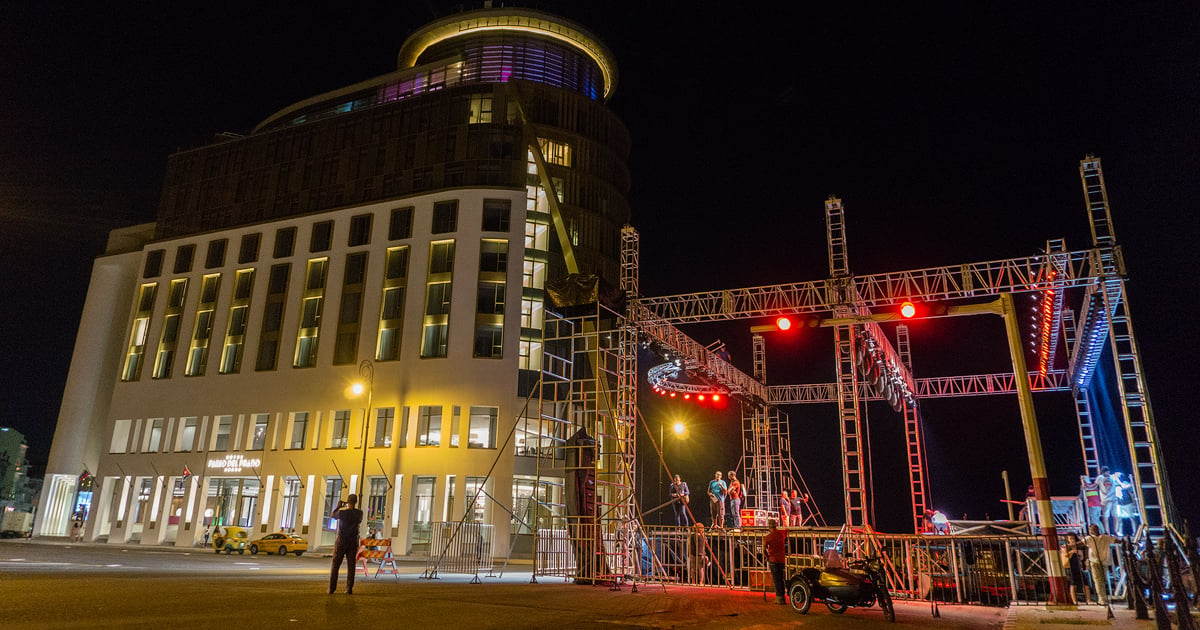
The Cuban regime has decided to strengthen measures in the tourism sector to prevent a collapse of its services in the face of potential failures in the national electrical system, such as the one that occurred between October 18 and 22, when the country experienced a total blackout that also affected the supply of potable water.
According to the Russian news agency TASS, the commercial director of the Ministry of Tourism of Cuba (MINTUR), Giana Galindo Henríquez, announced that for the winter season 2024-2025, hotels will be equipped with backup generators, which will ensure the stability of the tourism sector even in situations of energy emergencies.
During the recent crisis, the hotels on the island continued to operate thanks to generators and the relocation of tourists to facilities that had full services, Galindo noted.
The official emphasized that the crisis had a "minimal impact" on tourism and that there were no recorded cancellations of tours, especially from Russian visitors, who represent the third-largest source market for tourism to Cuba.
This statement was confirmed by Konstantin Dudkin, the representative of Pegas Touristik in Varadero, the leading Russian tour operator on the island, who emphasized the organization of the Cuban government and the Ministry of Tourism (MINTUR) in ensuring the necessary services, including water storage and the supply of diesel for generators.
In contrast to these measures for tourists, the Cuban population faced serious difficulties during the prolonged blackout, suffering food losses and limitations in essential services.
The lack of electricity and water has led citizens to resort to rudimentary alternatives such as cooking with firewood, and in several cities, nighttime protests have been reported due to the impact of power outages on daily life.
For the upcoming peak season, the Cuban Ministry of Tourism assures that the necessary precautions have been taken to ensure the continuity of tourism services. However, access to these generators and services appears to be primarily reserved for the tourism sector, while the general population continues to face inadequate energy infrastructure.
The collapse of the Cuban electrical system and the regime's priorities.
The recent energy crisis in Cuba has highlighted the fragility of the national electric system, impacting both the local population and the tourism sector, especially during the recent total blackout events.
Although the Ministry of Tourism is implementing measures to maintain the sector's operability, such as acquiring backup generators, the context reveals a complex landscape that goes beyond simple emergency solutions.
On October 18, the blackout plunged not only Cuban cities into darkness but also the most important tourist centers, such as hotels in Varadero, where even backup generators failed in some cases, leaving tourists and workers without power.
The situation created an atmosphere of uncertainty and discontent, particularly among foreign visitors who came to the island seeking a fulfilling vacation experience.
Furthermore, the energy crisis in Cuba has deep roots associated with long-term policy decisions that have negatively impacted the country's energy infrastructure.
Cuban economists have pointed out that the decisions to rely on fossil fuels, in a context of financial constraints and limited access to modern technology, have rendered the system vulnerable and obsolete.
In June 2022, Cuban economist Pedro Monreal stated that Cuba's energy crisis was a result of a political decision that prioritizes available resources for real estate development in tourism, to the detriment of basic services.
According to the renowned specialist, the decision to invest in one sector or another is a choice made by those in charge of the country.
"The lack of resources affects investment, but a sustained shift in the relative weight of sectors indicates a political decision: to prioritize available resources in favor of real estate activity (which includes tourism), to the detriment of basic services (electricity, gas, and water)," Monreal pointed out.
The increasing and relentless pace of investments in the tourist sector, controlled by the Grupo de Administración Empresarial S.A. (GAESA) under the regime's leadership, has become a priority that has ultimately impacted other public services, such as energy, healthcare, transportation, and education.
Everything is connected, but the regime is wearing blinders.
The priority given to investments in the tourism sector at the expense of others ultimately impacts the development of tourism on the Island, an issue that the Cuban regime seems either unable to understand or indifferent to.
The energy crisis has been particularly challenging for tourists, as demonstrated by a recent incident involving a Canadian visitor who experienced a power outage during her vacation.
The tourist described how the collapse of the National Electric System impacted her stay, leading to the cancellation of basic services and creating a tense atmosphere in the hotels. This situation has begun to affect the country's image as a safe and reliable tourist destination.
However, despite these challenges, the Cuban government continues to promote the country as an attractive tourist destination, highlighting reasons such as its natural beauty, vibrant culture, and rich history.
For many, these factors remain compelling reasons to visit the island, although current conditions raise doubts about the infrastructure's ability to meet travelers' expectations.
The reality is that, while the regime focuses on preserving the tourism sector, a large part of the Cuban population continues to suffer from an infrastructure that does not reliably provide basic services.
What do you think?
COMMENTFiled under: